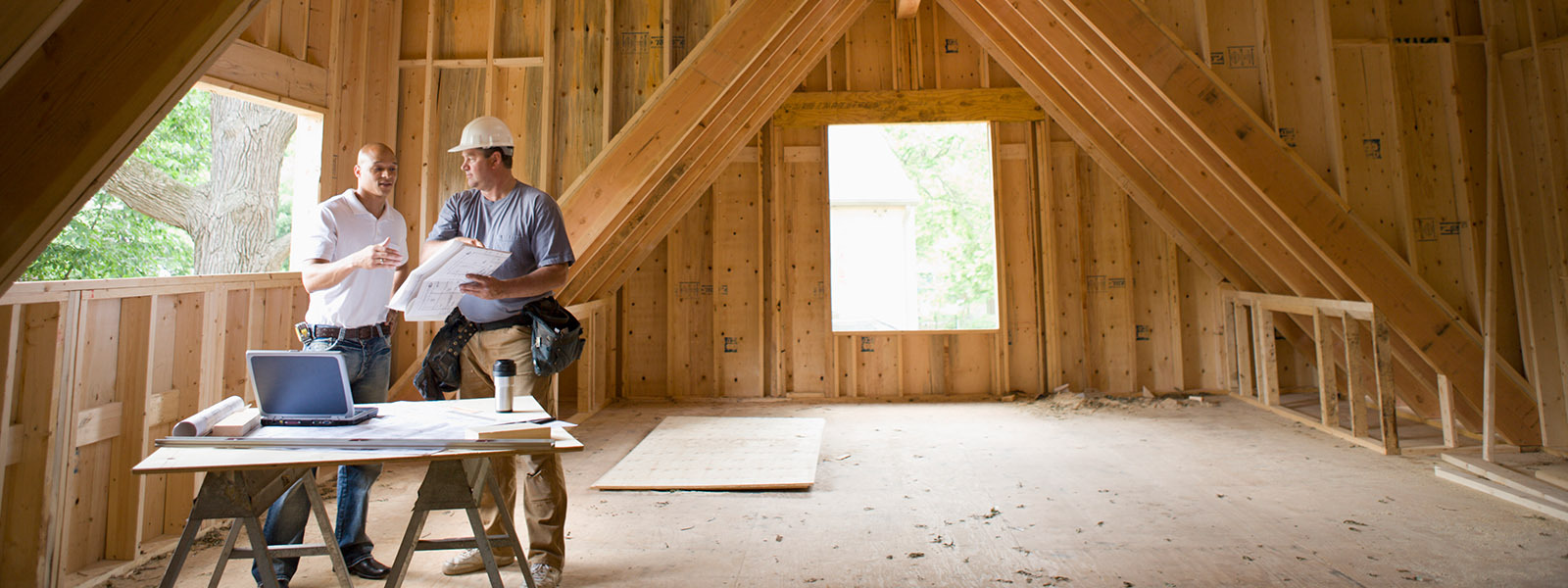Estimated reading time: 3 minutes
Hiring a contractor is one of the best ways to get home repairs done quickly, but you’ll want to be cautious when deciding exactly who to hire, especially after a disaster. Consider these 8 tips to help choose the best person for the job.
1. Get recommendations
Ask your friends and family for recommendations of good, trustworthy contractors. For additional leads, the Federal Trade Commission (FTC) suggests contacting organizations like the National Association of Home Builders which may also have important information on contractors’ backgrounds.
The Consumer Financial Protection Bureau (CFPB) suggests taking these steps even following a disaster when you may feel rushed to find anyone who can help with repairs. To that end, the CFPB warns you should avoid people who:
- Come to your door to solicit services.
- Aren’t from your state.
- Don’t provide references.
- Won’t let you see their ID or share their contact info.
2. Check online reviews
To weed out non-contenders, the FTC recommends searching contractors’ company names and terms like “complaint” or “scam.” You can also check for contractors’ ratings at sites like HomeAdvisor® where other homeowners may have left helpful reviews.
3. Conduct phone interviews
Once you’ve assembled a list, make a quick call to each contractor to ask basic questions. These can include if they have references, how long they’ve been in business, and if they and their subcontractors are licensed and insured, among other things. On that note, experts say their insurance should include personal liability, worker’s compensation, and property damage coverage for your protection.
4. Verify what you’re told
Following your calls, verify contractors’ claims. State’s contracting boards can confirm licensing information, for example. The CFPB adds that state licensing boards and attorney general’s offices may also reveal if a contractor has faced complaints. Insurance can be validated by requesting and verifying a “certificate of insurance” which can prove a contractor’s covered.
5. Meet in person
After narrowing down your list, decide which contractors you want to meet. This will give you an opportunity to get a feel for how they work and to discuss your project more. One rule of thumb is to look for people who answer your questions capably and make you feel comfortable. This sounds simple enough, but communication between you and your contractor may be key to your project’s success.
6. Get at least 3 bids
It’s a good idea to get bids from multiple contractors. Veteran contractor Tom Silva also recommends asking candidates to list out the same information—from material and labor costs to their margins of profit. This can help you effectively compare bids.
7. Understand your payment options
Setting a payment schedule with your contractor is a good idea to help ensure quality work. Large projects usually start with a down payment, and the FTC advises limiting how much this can be and confirming if your state has any restrictions. Additionally, experts caution against making upfront payments without a contract. For more security, you can also try to make payments during the project dependent on satisfactory completion of defined amounts of work.
8. Discuss any insurance claims
If you have to pay a contractor after filing an insurance claim—like after a disaster—your payment process may be a bit different. See our blog, “After a Disaster: Filing an Insurance Claim, Applying for Mortgage Assistance, and More,” for more information and check with your insurer.
All things considered, working with a contractor can be stressful, but with proper planning and safeguards, you’ll increase your chances of a successful home improvement project.
Tradenames and trademarks used in this blog post are the property of their respective owners. Nationstar Mortgage LLC d/b/a Mr. Cooper is not affiliated, associated, or sponsored by any of these owners. Use of these names and trademarks is not intended to and does not imply endorsement, but is for identification purposes only. Information provided does not necessarily represent the views of Mr. Cooper. Information is subject to change without notice.







